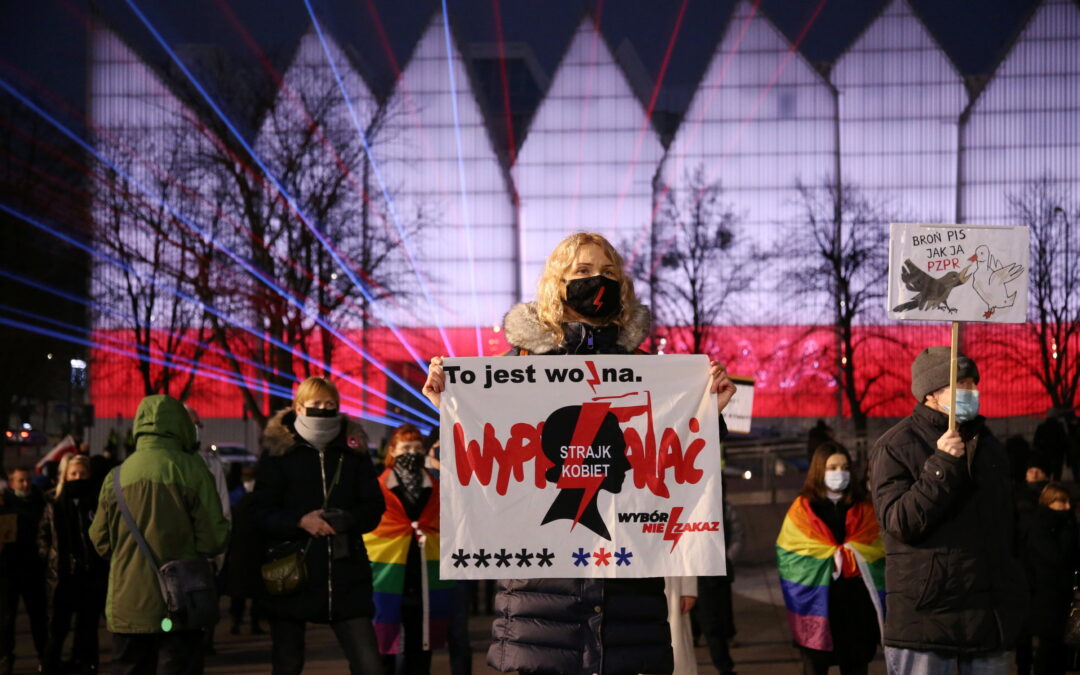A court in northern Poland has acquitted two people accused of using an indecent slogan in a public place during recent mass protests against a near-total ban on abortion. “A polite protest would make no sense,” said the judge.
The pair, described as “a woman and a young boy”, were carrying a banner saying “Wypierdalać” (meaning “Fuck off” or “Get the fuck out”), which has been one of the main slogans of the demonstrations, which were the largest in Poland’s post-communist history.
We explain six of the symbols that have come to characterise the mass abortion protests in Poland, including the red lightning bolt, the word "Wypierdalać", umbrellas, and the cryptic ***** *** https://t.co/qTCcLzZ5de
— Notes from Poland 🇵🇱 (@notesfrompoland) October 31, 2020
The defendants were accused of violating article 141 of the petty offence code, which prescribes community service, a fine of up to 1,500 zloty (€330) or a reprimand for placing an “indecent announcement, slogan or drawing or using indecent words” in public.
Hanna Ścisłowska, the judge in the court in the small town of Gryfice where the protest took place, decided that the word on the banner was vulgar and used in public, reports Gazeta Wyborcza.
However, she concluded that this act was not “socially harmful” in the context of the protests. The article of law in question, she noted, is used for people who disturb others for base motives, and as citizens, the accused had the right to express their dissatisfaction.
“A polite protest would not make sense, because nobody would pay any attention to it,” Ścisłowska argued, quoted by TVP Info.
The demonstration where the offending banner was raised took place in November and was attended by local activists as well as Marta Lempart, the leader of the Women’s Strike movement that organised the nationwide protests.
Police took the details of protesters and later, following “pressure from above”, according to an unofficial source cited by Gazeta Wyborcza, looked for pretexts to punish them.
One of the police officers questioned as a witness said that other “vulgar banners” were also present, but the one in questioned stood out because of its “significant dimensions”. Another admitted that he did not feel offended by the content as he “heard worse things at work”, but said that the vulgarity “violated public order”.
Main image credit: Cezary Aszkielowicz / Agencja Gazeta

Ben Koschalka is a translator, lecturer, and senior editor at Notes from Poland. Originally from Britain, he has lived in Kraków since 2005.




















